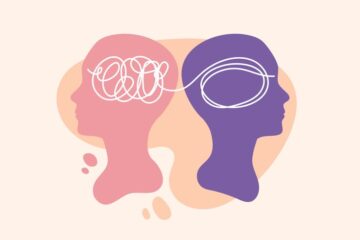Living with Type 1 Diabetes (T1D) is a 24/7 job, and it becomes a little easier when the people around you understand what it is and how they can support you. Whether you’re newly diagnosed or have been managing T1D for years, educating your friends not only helps clear up misconceptions, but also helps you build a supportive network that knows how to help when you need it most. Here’s a guide to helping your friends better understand T1D and how they can be there for you.
Start with the Basics
Most people have heard of diabetes, but they might not know the difference between Type 1 and Type 2. It’s important to explain that T1D is an autoimmune condition where the pancreas stops producing insulin, and it has nothing to do with diet or lifestyle. People with T1D need to monitor their blood sugar levels closely and take insulin multiple times a day either through injections or a pump.
Let them know that managing T1D requires constant attention. It involves counting carbs, calculating insulin doses, tracking trends, and being aware of how things like stress, exercise, and illness can affect blood sugar.
Debunk Common Myths
One of the most helpful things your friends can do is understand what T1D is not. Here are a few myths you might want to clarify:
- “You must have eaten too much sugar” – T1D isn’t caused by sugar intake.
- “Can’t you just stop eating carbs?” – People with T1D can eat carbs; they just need to balance them with insulin.
- “At least you don’t have the bad kind” – There is no “better” or “worse” type of diabetes. Both types are serious and require management.
- “You’ll grow out of it” – T1D is lifelong. There’s no cure yet.
By clearing up these misconceptions, you’ll help your friends feel more confident and informed.
Teach Them the Signs of Highs and Lows
A key part of being supportive is knowing what to look for. You can help your friends learn the signs of high and low blood sugar, and what they can do to help.
Low blood sugar (hypoglycemia) signs include:
- Shakiness
- Sweating
- Confusion
- Irritability
- Dizziness
- Hunger
How they can help:
- Offer you a fast-acting carb like juice, glucose tablets, or candy
- Stay with you until you feel better
- If you’re unconscious or can’t respond, they may need to administer glucagon or call 911
High blood sugar (hyperglycemia) signs include:
- Excessive thirst
- Frequent urination
- Fatigue
- Blurred vision
How they can help:
- Encourage you to check your blood sugar
- Remind you to take insulin if needed
- Offer support and stay calm
Letting your friends know what these symptoms look like and how they can step in is incredibly helpful and could even be lifesaving.
Let Them Ask Questions
Sometimes people are afraid to say the wrong thing, so they don’t ask questions at all. Encourage your friends to ask anything they’re curious about—you’d rather they understand than assume.
You might even share your devices with them. Show them your insulin pump, CGM (continuous glucose monitor), or how you check your blood sugar. Let them see the tools you use every day, and how they help you stay safe and healthy.
Talk About Emergency Situations
As much as we all hope emergencies never happen, it’s important to be prepared. Let your friends know where you keep emergency supplies, like a glucagon kit, juice boxes, or your diabetes bag.
Explain how and when to use glucagon. Make sure at least a few people in your circle know what to do if you pass out or have a severe low. Practice using a demo kit together if possible.
Share How They Can Support You Day-to-Day
Support doesn’t always have to be medical or dramatic. Sometimes, it’s just having someone who checks in with you, makes sure you’ve eaten, or offers to carry your bag if you’re feeling low.
Other small ways your friends can support you:
- Being patient if you need to stop and check your blood sugar
- Keeping snacks on hand
- Helping you find low-carb food options at restaurants
- Not making you feel weird for having diabetes
Emotional support matters just as much. College, work, relationships—life can be hard to juggle with T1D. Having someone who simply listens or reminds you that you’re doing a great job can make a big difference.
Final Thoughts
You don’t have to educate everyone all at once. Take it one step at a time and share what feels comfortable. The more your friends learn, the more empowered they’ll feel to support you in meaningful ways.
Type 1 Diabetes doesn’t define you, but having a community that understands it can make life so much smoother. Your friends want to help—they just need the tools to do so. Start the conversation, share your story, and keep advocating for yourself. You deserve it. ✨



0 Comments